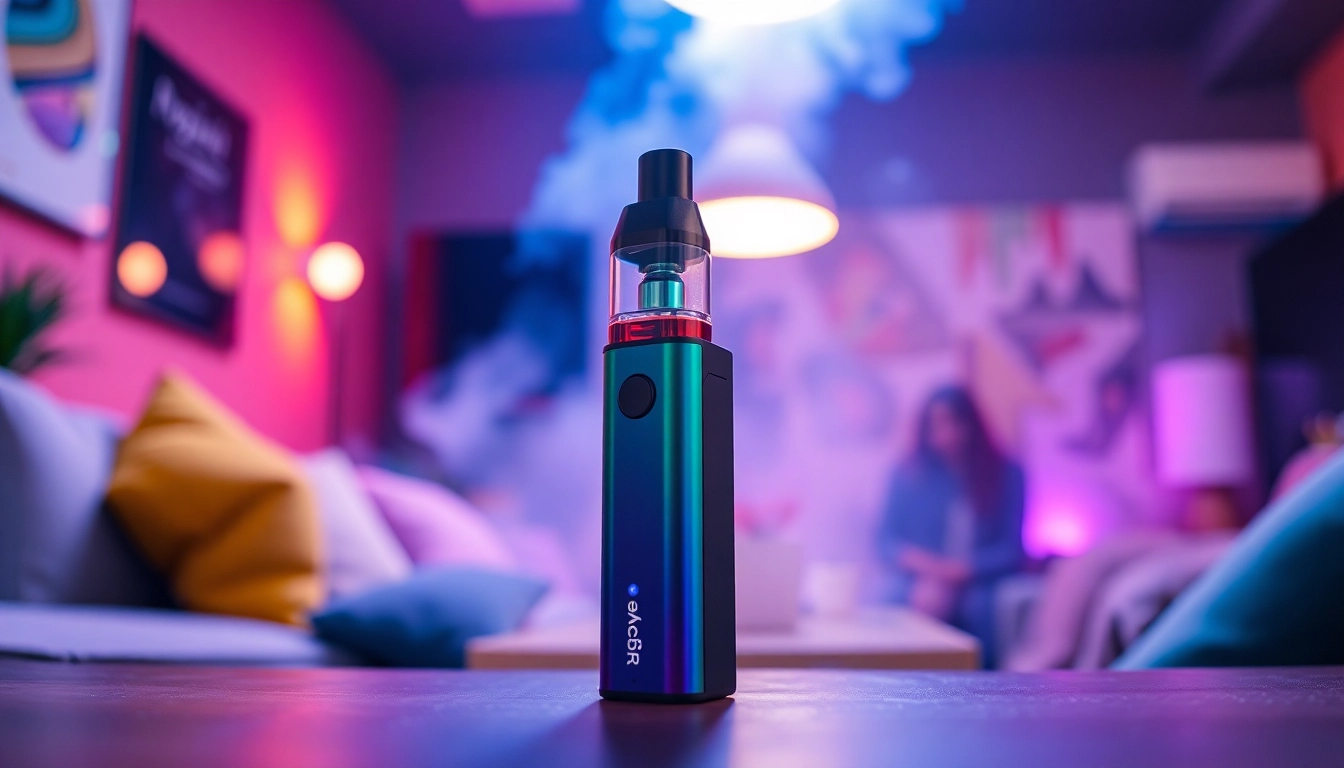
Understanding Depression: Symptoms and Causes
What Is Depression?
Depression is a complex mental health disorder that affects millions of individuals globally. Characterized by persistent feelings of sadness and a lack of interest in previously enjoyed activities, it is more than just a fleeting emotion. Depression can influence almost every aspect of a person’s life, from their social interactions to their professional responsibilities. It’s important to recognize that depression is not simply a result of personal weakness or a character flaw; rather, it is a legitimate medical condition that requires understanding and appropriate management. To begin addressing the serious issue of dealing with depression, it’s crucial to understand its various facets, including symptoms and causes.
Common Symptoms of Depression
The symptoms of depression can vary widely among individuals, encompassing emotional, cognitive, and physical elements. Common emotional symptoms include:
- Persistent sadness or low mood
- Feelings of hopelessness or helplessness
- Anxiety or irritability
Cognitive symptoms may involve difficulties in concentrating, making decisions, and persistent negative thoughts. Physically, individuals may experience changes in sleep patterns, appetite fluctuations, fatigue, and unexplained aches or pains. For a diagnosis of clinical depression, an individual often experiences a combination of these symptoms over an extended period, usually for at least two weeks.
Causes of Depression: Biological and Environmental Factors
The causes of depression are multifaceted, typically involving a combination of biological, psychological, and environmental factors. Biological causes can include:
- Chemical Imbalances: Neurotransmitters such as serotonin, dopamine, and norepinephrine play significant roles in mood regulation. An imbalance in these chemicals can contribute to depressive symptoms.
- Genetic Predisposition: If there is a family history of depression, individuals may be more susceptible due to inherited genetic factors.
In addition to biological factors, various environmental influences can trigger or exacerbate depression. These can include major life changes such as loss of employment, relationship issues, trauma, or persistent stress from financial or social factors. It is essential to recognize that these causes often interrelate, creating a complex web that can complicate the understanding and treatment of depression.
Coping Mechanisms for Dealing with Depression
Self-Care Strategies
Coping with depression often requires a proactive approach to self-care. Incorporating regular physical activity into one’s daily routine has shown to improve mood and energy levels, thanks to the endorphin release that occurs during exercise. Additionally, maintaining a balanced diet rich in nutrients can support mental health. Foods such as omega-3 fatty acids, whole grains, fruits, and vegetables are known to contribute positively to mood stability.
Another vital aspect of self-care involves establishing a healthy sleep pattern. Poor sleep can significantly worsen depressive symptoms, so prioritizing sleep hygiene—such as maintaining a consistent sleep schedule and creating a restful environment—can provide relief.
Importance of Social Support
The role of social support cannot be understated in the journey of dealing with depression. Reaching out to friends, family, or support groups can offer individuals a sense of belonging and validation, which are crucial during challenging times. Engaging with others not only alleviates feelings of isolation but also allows individuals to share their experiences, leading to valuable insights and encouragement.
Furthermore, numerous studies have highlighted the positive impact of social interaction on mental health. Activities like group exercise, volunteering, or even just casual meet-ups can foster relationships and provide the emotional boost that many people with depression desperately need.
Mindfulness and Stress Management Techniques
Implementing mindfulness practices and stress management techniques can significantly aid those dealing with depression. Mindfulness meditation promotes awareness of the present moment and can help to reduce rumination—an essential skill since repetitive negative thoughts can reinforce depressive episodes. Simple practices such as deep breathing exercises, yoga, or tai chi can enhance relaxation and improve one’s emotional resilience.
Creating a personalized stress management plan is highly beneficial as well. This plan can encompass activities that bring joy, relaxation, and fulfillment, serving as interruptions to daily stressors. Journaling, artistic expression, or even engaging in hobbies can be constructive avenues for individuals to channel their emotions positively.
Treatment Options for Managing Depression
Therapeutic Approaches
When self-care strategies are insufficient, professional help may be necessary. Various therapeutic approaches exist, the most common being cognitive-behavioral therapy (CBT). CBT focuses on identifying and challenging negative thought patterns that contribute to depression. Through structured sessions with trained therapists, clients learn to replace these harmful thoughts with healthier perspectives.
Another effective form of therapy is interpersonal therapy (IPT), which emphasizes improving interpersonal relationships that may be affecting one’s emotional well-being. Family therapy and group therapy can also be beneficial for fostering support and addressing underlying issues.
Medication: When Is It Necessary?
For some individuals, medication can be a crucial component in their treatment plan, especially in more severe cases of depression. Antidepressants, such as selective serotonin reuptake inhibitors (SSRIs), can help to balance neurotransmitters in the brain, leading to an improvement in mood. However, it is essential to consult with a healthcare professional to assess the appropriateness and potential side effects of any medication.
Regular follow-ups with the prescribing physician can ensure medication effectiveness and address any concerns that may arise, as medications often take several weeks to begin showing noticeable effects.
Alternative Treatments: Exploring New Avenues
In addition to traditional medication and therapy, some individuals may find benefit in alternative treatments. Techniques such as acupuncture, aromatherapy, and herbal supplements have been explored, though it is critical to approach these methods cautiously, ensuring they complement existing treatment plans. Engaging with healthcare providers can help to tailor alternative therapies effectively and safely.
Moreover, practices involving mindfulness, yoga, and art therapy have emerged as promising supplementary options that can enrich the therapeutic process. They provide avenues for individuals to express themselves creatively, relieve stress, and connect with their emotions on a deeper level.
Busting Myths About Dealing with Depression
Common Misconceptions
Despite the growing awareness of mental health issues, several myths about depression persist. One common misconception is that depression is simply a result of being sad or that individuals can just ‘snap out of it.’ This perspective trivializes the experiences of those truly suffering and reinforces stigma. Depression is a layered condition that warrants proper support and treatment.
Another myth is that only women experience depression, while in reality, it affects all genders. Though studies show that women may have higher reported rates, men also suffer from depression, often masking their symptoms due to societal expectations of masculinity, which can lead to unaddressed mental health issues.
The Impact of Stigma
The stigma surrounding mental health continues to hinder open conversations about depression. Individuals may fear judgment or misunderstanding from others, leading them to suppress their feelings. This societal pressure can not only discourage individuals from seeking help but also exacerbate feelings of isolation and despair.
Combatting stigma requires collective action—across communities and workplaces—and promoting mental health education. Educating others about the complexities of depression can foster understanding and empathy, creating a more supportive environment for those in need.
Understanding the Reality of Mental Health
It’s pivotal to acknowledge the reality of living with depression and that it necessitates attention and care, just like any other medical condition. Individuals experiencing depression deserve compassion, support, and access to effective treatment. By cultivating awareness and promoting an inclusive dialogue, society can help dismantle the barriers that often prevent individuals from seeking the help they need.
Finding Hope: Success Stories and Support Resources
Real People, Real Recovery: Inspiring Journeys
Sharing stories of recovery can serve as a beacon of hope for those navigating their battles with depression. Many individuals have successfully embraced their mental health journeys, utilizing therapy, medication, and support systems to reclaim their lives. Personal accounts of resilience often highlight the power of persistence, the importance of seeking help, and the transformative impact of developing coping strategies tailored to individual needs.
These narratives not only encourage an understanding of what depression truly entails but also validate the experiences of those affected, illustrating that recovery is not only possible but achievable.
Resources for Help: Finding the Right Support
Accessing the right support is key to managing depression effectively. Counseling services, hotlines, and community organizations can provide essential resources. Many communities offer mental health resources that range from support groups to educational workshops, equipping individuals with knowledge and coping strategies. Websites and helplines also serve as valuable resources for individuals seeking immediate support or information regarding mental health.
Additionally, platforms focusing on mental health can connect individuals with therapists, offer self-help strategies, or provide forums for sharing experiences. Utilizing these resources can empower individuals to take proactive steps in their mental health journey.
Building a Personal Action Plan to Overcome Challenges
The culmination of insights, stories, and professional guidance can assist individuals in building a personal action plan to combat depression. This plan should be tailored to individual needs and may include specific goals such as establishing routine self-care practices, scheduling therapy sessions, engaging in community activities, and fostering supportive relationships.
Regularly assessing progress and adjusting goals as needed is crucial. Setting achievable milestones can foster a sense of accomplishment and encourage continued engagement in the recovery process. Ultimately, creating a personal action plan facilitates a proactive stance in dealing with depression, reinforcing resilience and hope.






